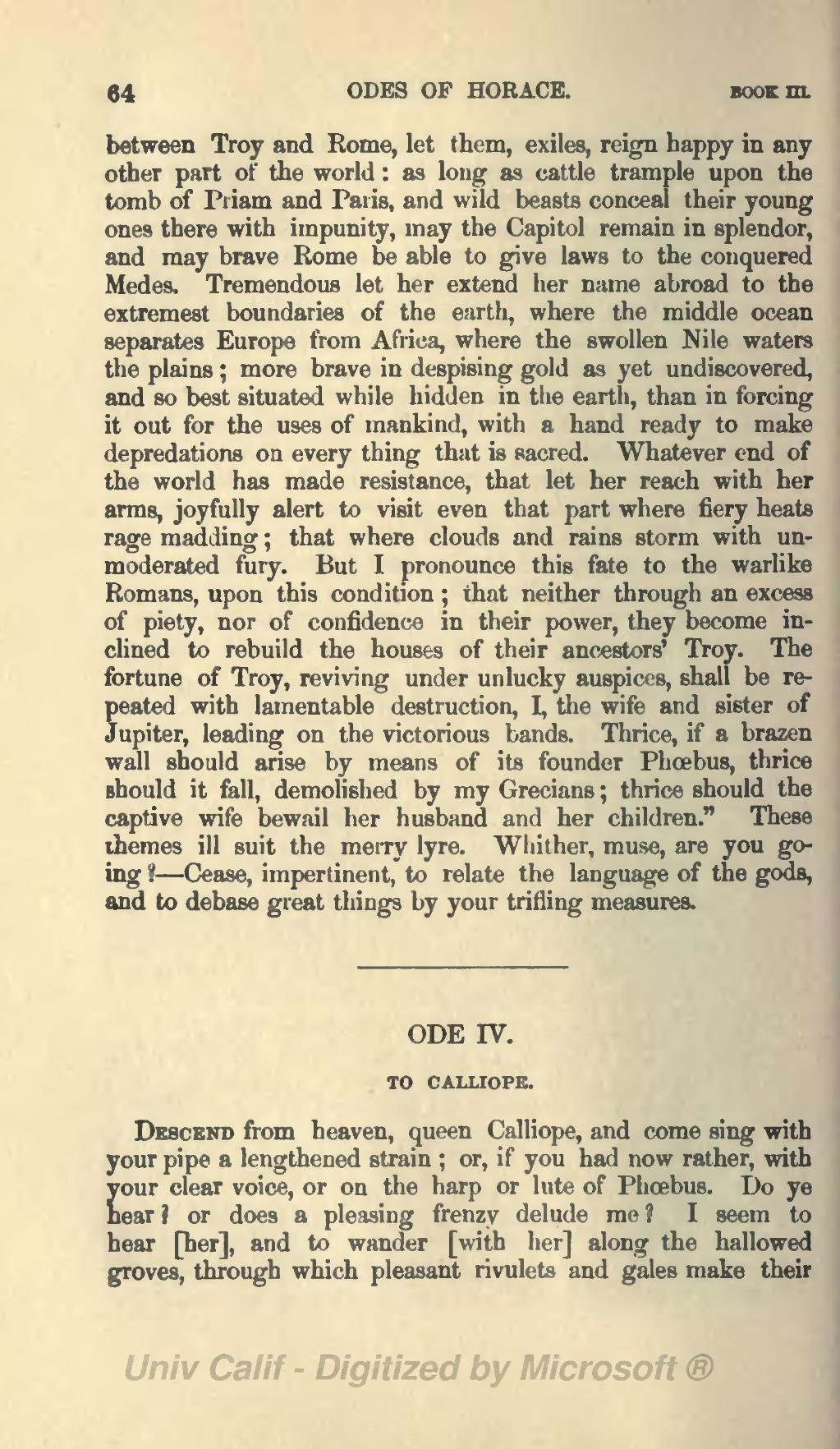between Troy and Rome, let them, exiles, reign happy in any other part of the world: as long as cattle trample upon the tomb of Priam and Paris, and wild beasts conceal their young ones there with impunity, may the Capitol remain in splendor, and may brave Rome be able to give laws to the conquered Medes. Tremendous let her extend her name abroad to the extremest boundaries of the earth, where the middle ocean separates Europe from Africa, where the swollen Nile waters the plains; more brave in despising gold as yet undiscovered, and so best situated while hidden in the earth, than in forcing it out for the uses of mankind, with a hand ready to make depredations on everything that is sacred. Whatever end of the world has made resistance, that let her reach with her arms, joyfully alert to visit, even that part where fiery heats rage madding; that where clouds and rains storm with unmoderated fury. But I pronounce this fate to the warlike Romans, upon this condition; that neither through an excess of piety, nor of confidence in their power, they become inclined to rebuild the houses of their ancestors’ Troy. The fortune of Troy, reviving under unlucky auspices, shall be repeated with lamentable destruction, I, the wife and sister of Jupiter, leading on the victorious bands. Thrice, if a brazen wall should arise by means of its founder Phœbus, thrice should it fall, demolished by my Grecians; thrice should the captive wife bewail her husband and her children.” These themes ill suit the merry lyre. Whither, muse, are you going?—Cease, impertinent, to relate the language of the gods, and to debase great things by your trifling measures.
ODE IV.
TO CALLIOPE.
Descend from heaven, queen Calliope, and come sing with your pipe a lengthened strain; or, if you had now rather, with your clear voice, or on the harp or lute of Phœbus. Do ye hear? or does a pleasing frenzy delude me? I seem to hear [her], and to wander [with her] along the hallowed groves, through which pleasant rivulets and gales make their
